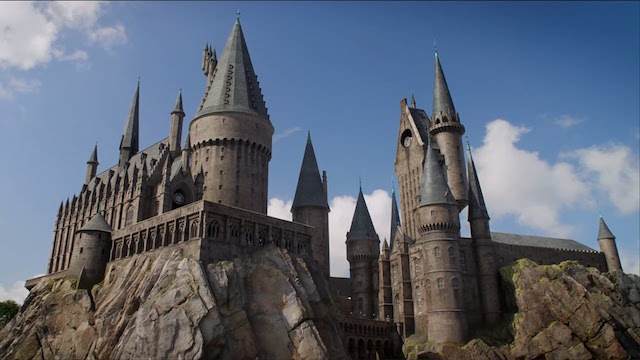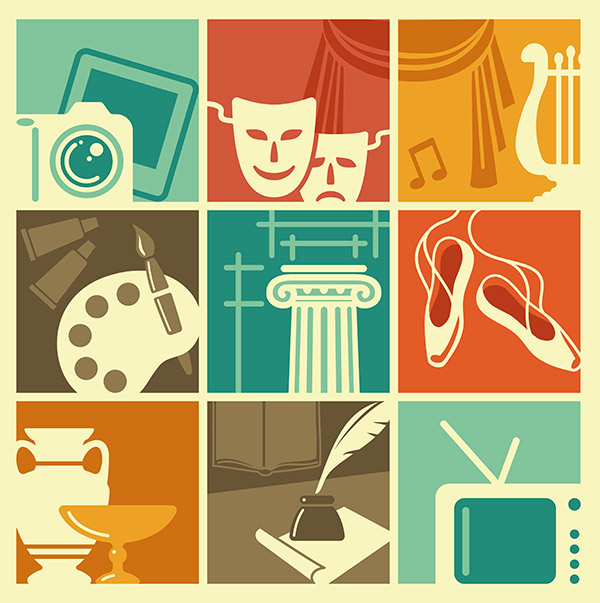I have made an essay defending the Let’s Play format on Youtube by comparing it with sports spectatorship. I love watching Let’s Play because it is fun, the same reason why people love watching sports. But, I always find the answer unsatisfying.
While the majority of such videos are purely entertainment, it is not always so. Some Let’s Play Youtubers, including the most popular ones, are willing to play story-driven video games. Horror games like Ib and Witch’s House. Emotional ones like A Beginner’s Guide and To The Moon. Ones that are both horror and emotional like The Crooked Man.
There is something satisfying about witnessing Youtubers getting unnerved by the disturbing plots and imagery, getting frustrated by the frustrating narrative, laughing at the jokes, trying to hold back tears due to the emotional heaviness. I love seeing them getting personally affected (and deeply traumatised) by the storytelling.
Maybe that’s why I love Let’s Play videos. The storytelling.
Maybe that’s why some of my favourite Youtube channels are all about pop culture exegeses.
I am not surprised some of them are about cinema. Even though I have not watched many of those Hollywood classics (and that makes me uncultured, according to Hollywood film snobs), I have watched enough films to have a long list of cinematic favourites. Not to mention cinema studies classes were some of the best and probably most worthy features of my university life.
I did grow up with certain mangas and animes like Ninja Hattori, Detective Conan, Kobo-chan, Kariage-kun and Doraemon. But, in Indonesia, they were also staples of bookstores’ comic sections and Sunday morning broadcasting; Doraemon has become an integral part of our cultural psyche. If they weren’t, I wouldn’t know or care about their existence.
There are also animes other than the aforementioned ones that I love, like Anohana, Spirited Away and Your Name. But, I haven’t watched other works of Studio Ghibli and Makoto Shinkai. I haven’t watched enough animes and read enough mangas to make a long list of personal favourites. Even then, me subscribing to anime Youtubers is less bizarre compared to me doing so to game analyses ones.
I have played videos games on extremely rare occasions. But, so far, the only video game I have been fully immersed in is Pokemon Ruby. I have not played any games from the Earthbound, Legend of Zelda, Metal Gear Solid and Silent Hills series. I have never played any of the RPG games my favourite Youtubers played.
From all game analyses Youtubers, Matpat is undoubtedly one of the most famous and also one of the most derided. Some of his so-called ‘theories’ are plagued with implausibility and infantile make-believe. But, if you pay more attention, you would notice how he plays a character in many of his videos.
The character seems to be a parody of over-zealous fans who believe in the figmental soundness of their fan ‘theories’. Admittedly, because Matpat has a very trained (and ungodly plastic) accent due to his musical theatre background, it is often difficult to distinguish him from the real person.
Here’s a tip: pay attention to his intonation and choice of words. If his voice sounds more dramatic than usual, if he acts like his theories are the most flawless, then he is in character. Heck, even in this video, he stated how he himself does not believe in every single ‘theories’ he has made!
(Come on, people! Youtubers play characters in their videos! It is not even a secret anymore! Unless your brain is less functional than one of a dead chicken, you can clearly see how they ‘possess multiple personalities’! But, what can I do? Idiots only see what idiots want to see.)
That Matpat persona actually hits close to home. I love to make my own fan theories. I love to investigate subtext and symbolism. I love making infantile make-believe! At one point, I dwelled in determining the meanings behind The Crooked Man. I discussed it with some of my friends and, because I want more data to develop my ‘theories’, I watched not one, but four different Youtubers playing the game; mind you this game feels long due to its unhurried pacing.
My friend’s criticism of my ‘theories’ didn’t bother me at all. As much as I was (and still am) pleased with them, I formulated them because it was fun! There is something gratifying about dissecting a chronicle clouded with grey and seemingly impenetrable mist. This is one reason why I am not bothered by how popular and influential Matpat is. While he is my go-to Youtuber for fan theories, I prefer another channel if I want more scholarly routes to and social commentaries related to video games.
I love Extra Credit because not only they offer handy game development advices, they also showcase us paradigms which I can safely say many gamers don’t care about. They believe the essences of gaming also includes business, aesthetics, politics, ethics and the human psyche. They believe giving those aspects equal amount of attention will enhance our appreciation of video games. I also share the same outlook regarding cinema and Youtube culture.
I hate the thinking which deems entertainment as a purely fun entity. Not only it is intellectually unsatisfactory, it is also extremely dishonest. I think the word escapism misleads us to believe entertainment belongs to a realm completely out of human reach. It does not. In case you didn’t know, entertainment is created by living human beings! It is and will always be affected by the world we live in!
Whether consciously or not, creators channel their worldviews to their creations. The most staunch ideologues among them may intentionally turn their works into propaganda; my blogs are good examples. The less committed or the more sophisticated among them will be subtle about it; only after intense scrutiny we will start to discern the subtext.
The merit of works of entertainment is also dependent on the producers; do they thrive to balance profit and quality or are they greedy capitalist pigs? There is no doubt the latter encourage us to believe wealth is worth the murder of artistic integrity. If the producers are also staunch ideologues, the creators can kiss their freedom of thought goodbye and start kissing orifices for a living!
Even in the most socially liberal countries, strict socio-cultural norms and legally-mandated censorship prevail. Granted that only the latter has lawful authority to ban, the former may have the power to socially outcast any works and creators that dare to be deviant. Conformity is God. Heresy is literally more sinful than murder!
Subconsciously, we often treat fictional characters as truthful representations of real life humans. It should not be that way. But, reality begs the differ. Therefore, mindfulness is crucial in how we shape narratives, especially when it comes to portraying marginalised groups. Ignore that and we will reinforce the presence of already-existing social illnesses!
Yes, consumers’ gullibility is also an issue here and we should tackle it as well. But, with that knowledge in their minds, it is revolting how some creators insist how dehumanising portrayal of their fellow human beings is an important part of freedom of speech. They carelessly disregard their actions’ impacts on the real world!
I don’t think censorship will benefit us in this case. But, the fact that we use freedom to validate the ugliness shows how ugly our inner selves can be. If they are revealed in physical manifestations, I am sure they would be ugly enough to make Satan cries tears of blood.
Enough with the poorly-transitioned tangents. Trust me. The content of Extra Credit is more wholesome than the self-praising paragraphs I just typed. Now, off to the next Youtuber!
Besides having fun with fan ‘theories’ and pretending to be a pop culture savant, I also love Youtubers for their personality-driven approaches to arts and entertainment. The Anime Man is one of my favourites.
The punily-named content creator exhibits traits that I also possess. First and foremost, he is a self-described sarcastic cunt who has an alter ego that satirises weeabos and anime fans whose opinions have less worth than decaying roadkills. I am also a sarcastic cunt who has made essays so satirical and mean-spirited, even I feel concerned about my own mental state.
Second, he is an outspoken nonconformist. He will candidly express objection to popular opinions, risking massive backlashes from anime zealots, some of whom may be a part of his own fan base. Even though I have yet to receive equally harsh backlashes in my personal life, I am often subjected to remarks with hints of subdued spitefulness; living in a country where honesty is regarded as a sin means one runs into genteel snakes everywhere one goes.
Third, because of the thing I just mentioned, he is often misidentified either as an anime elitist and an anime casual. Anime casuals call him an elitist for having the guts to crucify certain mainstream animes while elitists call him a casual for still loving some of them. Personally, I have been called pompous for not loving everything mainstream and unsophisticated for still loving pop culture. Too snobby for uncultured swines and too much of a swine for snobs.
Lastly, as far as I concern, he never cites scholarly sources in his analyses and has no knowledge of relevant technical concepts, solely relying on reason and limited information he has about certain works and artists. I am also one and the same concerning Youtubers, films and the entire Harry Potter franchise. As a result, our dissection feel sparse at times (even though his is more logical, more coherently conveyed and laced with funnier jokes).
But, that does not matter. None of us are interested in becoming scholars (just pretend that my conjecture about him is accurate). All we want to do is to have fun, to express our frustrations about certain creations and their creators, to indulge our childlike and playful passions for them. We do what we do because it feels personal for us.
This is why I love storytelling in general: it feels personal.
For one (and it should be predictable to you), storytelling expands my horizons. Fictions are a constant reminder about how the universe we live in stretches beyond its fragile, bleak and nihilistic physicality. They, even when poorly-conceived, encourage me to push the limits of my imagination. It may be a surprise to some. But, such benefit can also be gained from creative non-fictions.
They foster ingenuity in how we determine the angles and the delivery of the stories. As they are inherently neither journalistic nor academic, playfulness is allowed. Fine exposition can make relatively dull and mundane stories look compelling. It makes us care about lives other than our own.
Because of my preferences for arts and entertainment over human interactions, I am often accused of being self-centered and anti-social. But, the older I get, the more I feel sorry for every pitiful individual who make such accusation.
.
Never mind they abuse the term anti-social, which is what we use to describe sociopaths. They also dishonestly equate the quantity of human interactions with how much we care about our fellow human beings. The more we chatter, the stronger our sense of humanity is. Of course, every person whose brain is no bigger than an ant’s can easily fall for such idiocy.
Non-fiction storytelling constantly reminds me that I am not alone. It reminds me how I am not the only one who experience what I experience. It reminds me how I am far from the most authentic human. It makes me a humbler person. I never thought non-fictions would spur personal growth in me.
Of course, I have to talk about the sense of humanity… which I mentioned earlier and almost forgot about it.
Besides imagination, it is one benefit I acquire from both fictional and non-fictional storytelling. They acquaint myself with real life inhumanity and they make me care about them, in spite of their superficial depictions. As I have learned to not take any portrayals for granted, there are times when I can receive information critically. Still have lots to learn, though.
To make it weirder, certain stories give me strong hope about humanity, in spite of their pessimism. Maybe my hopefulness is cultivated by how they reassure me that humanity still exists. I mean, if it doesn’t, why would there be storytellers who revile the said inhumanity?
Before I conclude it all up, I should mention one benefit of storytelling that I have mentioned to other people: storytelling is a mirror. Whether we like it or not, our reactions to stories, including fictional ones, are reflections of our true nature. How we react to anything, really.
I feel like Captain Obvious here. But, some people refuse to believe it; instead, they accuse me of overthinking and complacency. Admittedly, I am often guilty of both. But, ask yourself this: if our reactions to works of fiction are not representative of our true selves, then where do they come from? They are our reactions, not someone else’s. They exist because you exist!
My prior and subsequent interactions with those denialist cretins were always contaminated with the ghastliness I condemned them for.
I actually have quite a few examples… and I will list them one by one, from the most trivial case to the most worrying. Here we go:
If you, a self-proclaimed horror fan, think a horror game or film is not scary without jump scares and scary visuals, then you have no idea what fear really is and you know nothing about the genre you supposedly love!
If you think calmness makes a dull storytelling, then you never care about the story in the first place. All you care about are imaginary actions and loud noises to make up for your dull, uninspiring personality. Heck, I am sure you make up for it by being obnoxious in your daily life!
If you think Newt Scamander is a boring male lead and negatively compare him to other male characters who fulfill outdated expectations of masculinity, then you are one of those reactionaries who believe upholding shallow, arbitrary and ever-changing gender roles is everybody’s moral duty!
If you are easily touched by a work that embodies self-righteousness and extremely on the nose ‘positivity’, then you are not ‘woke’. You are just as skin-deep as the next person. But, at least, you possess something that he/she doesn’t: a towering erection of self-admiration!
If you are able to sympathise with a character meant to mock ‘your kind’ and anything you stand for, then you are a nuance-hating dumbfuck who view human identities through black and white lenses. Your footing is either shaky or non-existent altogether. In many cases, it is surely the latter!
If you condemn Harry Potter and the Order of Phoenix for allegedly teaching kids to disrespect authorities and dishonestly snubbing its scathing commentaries about the corrupt political establishment, then you probably have licked more boots than every child in the world has licked lollipops!
If you believe non-stereotypical depictions of the ‘others’ is too PC, then you are a bigot. Contradicting your professedly anti-PC stance, you are offended by their depictions as human beings. From where you are standing, they are anything but. The world is a better if everyone adheres to your bigotry!
Either that or your brain is not strong enough to sustain itself without a perpetual stream of offensiveness!
With all of those intimate and pretentious musing, it should not be a surprised I love those Youtubers.
Yes, in case you forgot, this essay began with their ‘discourse’.
.
.
.
.
.
.
.
.
Support this deadbeat, preachy blogger on Patreon.







